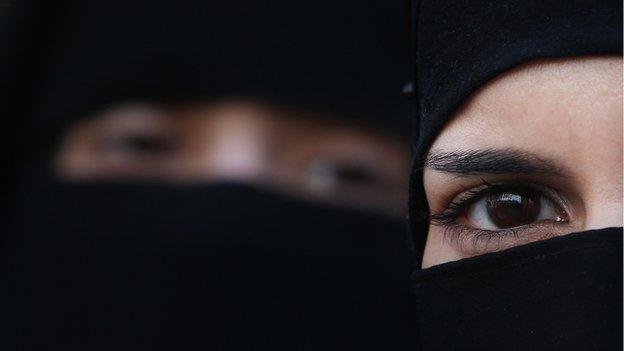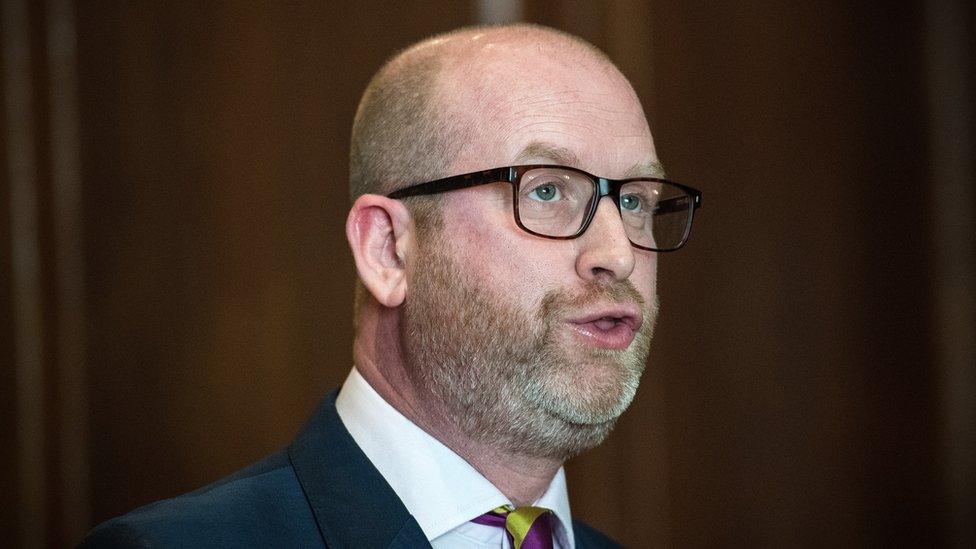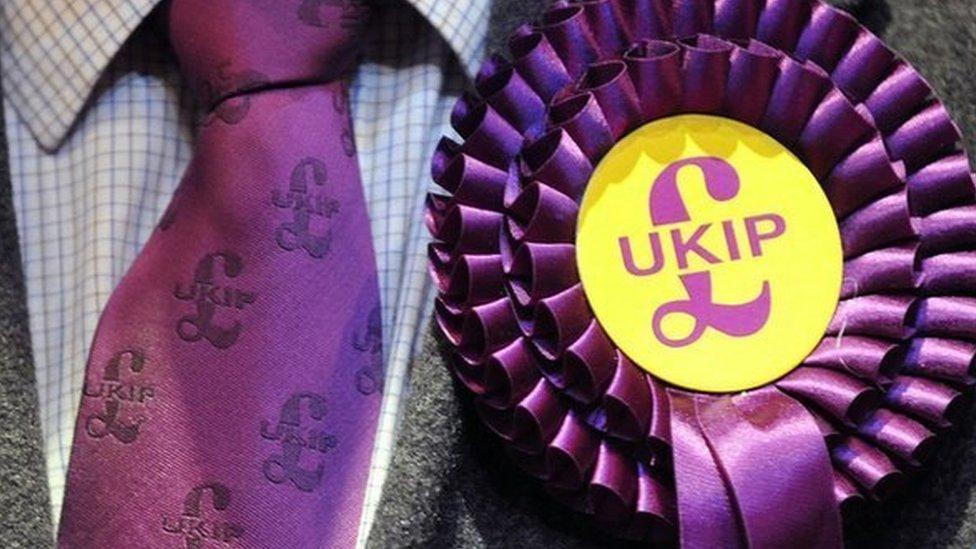UKIP: Full face veils are 'barrier to integration'
- Published
- comments

UKIP's proposed ban on full veils worn by some Muslim women has "great public support", the party's deputy leader has claimed.
Peter Whittle said wearing a burka or niqab is "an absolute symbol of the subjectification of women".
UKIP wants no new Islamic schools in the state system until the Muslim community "is better integrated".
But Green Party co-leader Caroline Lucas likened UKIP's integration agenda to "full throttled Islamaphobia".
She spoke out after UKIP used a central London event to broaden its agenda beyond its successful campaign for Brexit.
The party says it wants girls at risk of Female Genital Mutilation (FGM) to have annual school-based medical examinations. It also wants failure to report FGM to be made into a specific criminal offence.
Mr Whittle insisted his party wants people "to integrate properly", adding that UKIP firmly believes "a multi-ethnic society can be a harmonious and successful one if it's bound together by an overarching attachment to Britain and British identity".
UKIP leader Paul Nuttall says full-face veils hinder integration
But he argued that face coverings "such as the Islamic veil are a deliberate barrier to integration - they say 'don't speak to me, I will not speak to you'," adding that they are "a potent symbol of female oppression" and a "security risk".
"When it comes to things like the veil, France has banned it, Belgium has banned it," he told the BBC. "The biggest parliamentary party in the European Parliament has recently called for an EU-wide ban on it."
Other UKIP policies unveiled ahead of the 8 June general election include:
Medical practitioners having the right to waive patient confidentiality and report cases of abuse of children
The Crown Prosecution Service pursuing the prosecution of parents of FGM victims
Crimes where race is a factor, such as in the Rotherham child sexual exploitation cases, treated as hate crimes
A ban on Sharia law and the setting up of a legal commission to disband Sharia courts
Ensuring all official documents are in English.
Caroline Lucas, co-leader of the Green Party, claimed UKIP's integration agenda was "an assault on multiculturalism and an attack on Muslims - it's full throttled Islamaphobia".
"Now that the referendum has passed Nuttall's party is desperately scrabbling around for relevance and seems to have settled upon attacks on Muslims and fringe far right politics as their new home," she said.
Former Lib Dem home office minister Baroness Featherstone claimed UKIP's FGM medical checks were "horrifically heavy-handed", arguing they would "alienate the very communities we are trying to reach out to".
"We should be training our teachers and other providers such as community experts to identify those at risk and teaching children themselves that FGM is wrong and to come forward if they fear for themselves or a friend," she said.
Will Nuttall stand in general election?
But Labour shadow home office minister Diane Abbott appeared to back the policy for mandatory medical checks during a Westminster Hall debate in 2014.
At the time she said: "It is a disgrace and a shame that in 2014 we cannot protect those young girls in London and other big cities. We have to face up to the need for prosecution and for routine medical examination."
Former UKIP member and donor, Arron Banks said he was not in favour of his party's proposed ban on the full face veil. "I think people have a right to their religious beliefs," he told BBC's Sunday Politics show.
"I think there are certain circumstances where if it's a security issue - maybe the airports, or public transport - it's acceptable, but I'm not in favour of curtailing people's [freedoms]."
However, he stood by the previous call he made on Twitter for a ban on Muslim immigration into the UK.
The former UKIP leader, Nigel Farage, proposed a burka ban in 2010. But the party later dropped the policy, and it did not appear in its 2015 manifesto.
Full-face veils are already banned in public in some European countries, including France.

- Published31 May 2018

- Published18 April 2017

- Published20 April 2017
